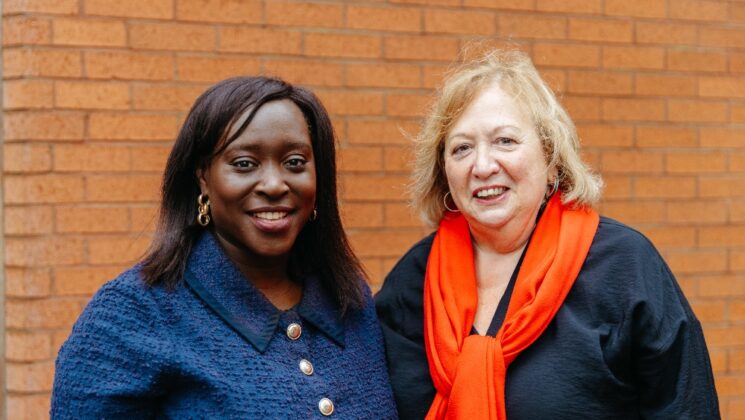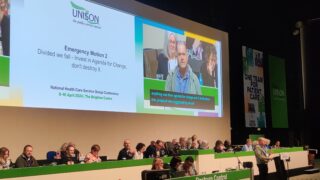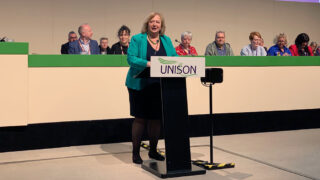UNISON is a place that Abena Oppong-Asare “likes to call home”. The shadow minister for women’s health and mental health was formerly a UNISON women’s officer and workplace rep for the Greater London Authority. She says UNISON “shaped her as a person and a politician.”
It’s therefore no surprise that Abena’s speech to UNISON’s women’s conference this year, which outlined Labour’s plan for the health of a nation, was met with a standing ovation from union delegates.
Since coming into the post in September 2023, Abena said she’s heard from countless people, including her own Erith and Thamesmead constituents, that women’s health is not taken seriously, particularly reproductive issues, and particularly for Black women.
“I’m alarmed that we have such high rates of post-natal suicide, and that Black women are four times more likely to die during pregnancy than white counterparts.
“Black maternal health is of personal interest to me. I was really shocked when I heard the data. We know the facts, but there isn’t always a drive to address the issues.”
Abena has a track record of speaking out about baby loss and birth trauma. “There’s a real stigma around it”, she says. “I’m looking into what needs to be addressed. I’ve met with bereaved families who have lost their babies when they’ve gone into hospitals and been treated badly.”
While Labour has pledged to train more midwives, Abena described how the language around this is critical: “It’s really key to emphasise that this is not to say the midwives we have aren’t good, it’s about ensuring that they stay in the workplace.
“It’s important to recognise that the NHS is amazing, but it was essentially built for men. We need to make sure that all healthcare that’s provided is equal, because women’s care tends to fall short.”
However, Abena also shares UNISON’s belief that healthcare isn’t just the responsibility of the NHS. Abena says one of Labour’s flagship women’s health commitments is on workplace menopause support: “We have a menopause workforce plan, which is essentially a plan for workplaces to make sure they’re menopause friendly and supporting people.”
Mental health
One of Abena’s priorities, should Labour win the next election, is to reform the Mental Health Act. “It’s 40 years out of date,” she says. “The government has spent years consulting with organisations and groups, but we haven’t seen any reforms. We need to narrow the racial disparities. Sometimes, if you’re a Black man, you’re incarcerated due to mental health issues. We need to look into this.”
Children’s mental health is a particular concern for Abena, who believes in the power of community solutions. “I want to see a mental health counsellor embedded in every single school across the country. From conversations I’ve had with both teachers and young people, everyone agrees this would be a positive thing.”
The connection between child and adolescent mental health, and adult mental health, is clear. “Adults with mental health issues have issues stemming from childhood that haven’t been treated. This is why I not only want to see counselling embedded in schools, but mental health hubs in the community, with an approach that’s embedded across all departments.”
Abena argues that mental health can often be a catalyst causing issues in other areas, for example she says: “I get a significant amount of housing cases in my constituency, and lots are linked to situations where people are battling mental health issues and if you’re only looking at the housing in isolation, you’re not addressing the root of the problem.”
“We need much more joined up thinking. This government only looks at things in isolation. We have to change the culture to make sure other departments recognise it’s their responsibility too.”







